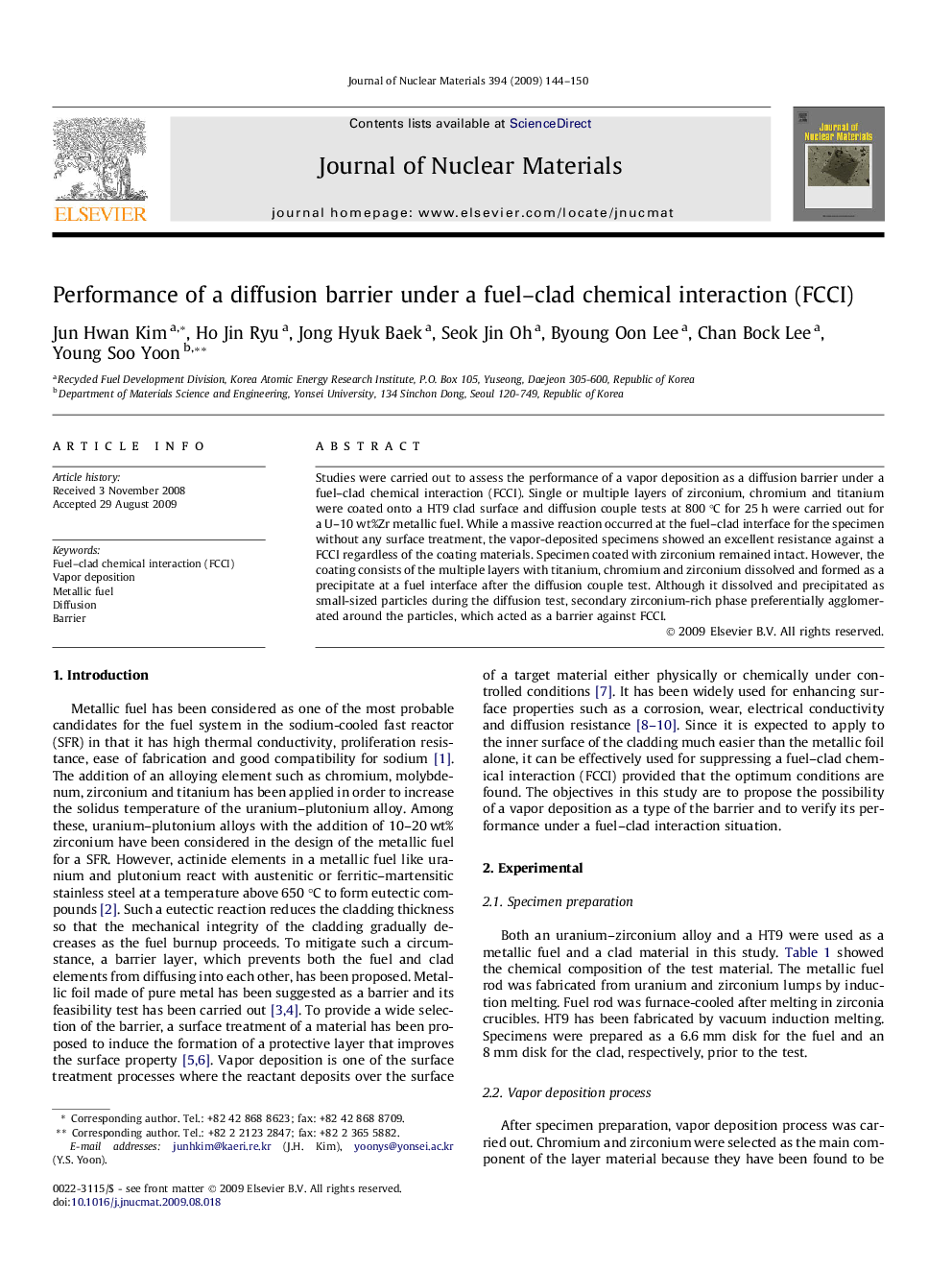| Article ID | Journal | Published Year | Pages | File Type |
|---|---|---|---|---|
| 1567725 | Journal of Nuclear Materials | 2009 | 7 Pages |
Abstract
Studies were carried out to assess the performance of a vapor deposition as a diffusion barrier under a fuel-clad chemical interaction (FCCI). Single or multiple layers of zirconium, chromium and titanium were coated onto a HT9 clad surface and diffusion couple tests at 800 °C for 25 h were carried out for a U-10 wt%Zr metallic fuel. While a massive reaction occurred at the fuel-clad interface for the specimen without any surface treatment, the vapor-deposited specimens showed an excellent resistance against a FCCI regardless of the coating materials. Specimen coated with zirconium remained intact. However, the coating consists of the multiple layers with titanium, chromium and zirconium dissolved and formed as a precipitate at a fuel interface after the diffusion couple test. Although it dissolved and precipitated as small-sized particles during the diffusion test, secondary zirconium-rich phase preferentially agglomerated around the particles, which acted as a barrier against FCCI.
Related Topics
Physical Sciences and Engineering
Energy
Nuclear Energy and Engineering
Authors
Jun Hwan Kim, Ho Jin Ryu, Jong Hyuk Baek, Seok Jin Oh, Byoung Oon Lee, Chan Bock Lee, Young Soo Yoon,
